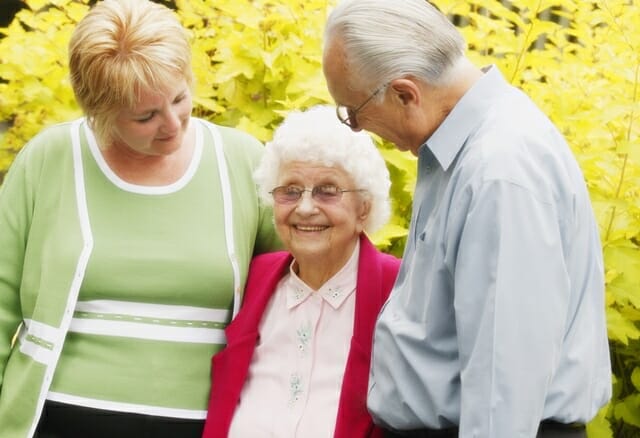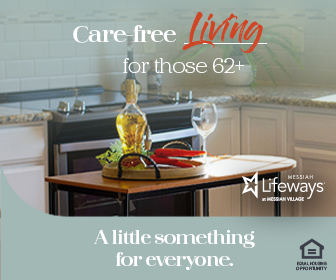Serving as a caregiver for an ailing parent or parents can be extremely challenging. It can be physically, mentally and emotionally draining. One of the first suggestions or ideal situations as a caregiver is to share the responsibility. Naturally much of this starts with the adult children, especially if both parents need assistance, or the spouse has their own health issues to deal with or has passed away.
As a parent’s health begins to fail, you’d hope all the kids would rally around mom or dad and work in harmony to reciprocate the care in this common reversal of caregiving roles. But not all that surprising, family dynamics, disagreement, and old wounds can make this process very complicated and typically results in one of the kids becoming the primary caregiver. This can create resentment and even more conflict between family members as the burden grows.
Caregiving Equity
Innocently enough, some siblings cannot offer as much help simply due to geography or their own family dynamics. If mom lives down the street from you, but lives 300 miles from your brother, let’s face it – there’s going to be some caregiving inequity. Work schedules, retirement, personal health issues, and dependent children can also create disparity among sibling caregivers. Although, there are solutions to alleviate some of these issues which you will see below.
Less excusable is the exaggeration of some of the above obstacles or the occasionally uttered excuse of, “well dad liked you best, so he’d rather you take care of him” or “I’ll do my part,” then they disappear or gradually minimize their efforts.
Lastly, are the inexcusable reasons for not partaking in the caregiving effort, such as simply turning a blind eye or a purposeful absence due to a held over grudge or poor relationship with siblings or that parent. But some old wounds can run very deep, and estrangement is sometimes irreversible.
Putting Differences Aside and Gaining Perspective
Whatever the reason the family dysfunction exists, I think most can and must get beyond these obstacles. Open communication and planning are essential. Full disclosure: my older brother and I are not very close. We communicate very infrequently. But there have been some recent instances where we needed to talk for the sake and well-being of our parents. If we could do this, most people can. The point where your parent is in need is not the time for conflict or jockeying of control. If things escalate, here are some suggestions to share the load.
• Call a family meeting – Include everyone to discuss the situation to work toward a common goal, especially for out-of-town siblings. Help them understand the need for care and intervention, as they may not be able to detect nor accept reality from so far away.
• Draft a care plan – The plan should be a well-balanced with well-defined roles. Divide up tasks by family member. For instance, if one sibling works in health care, they could take on all of the medical appointments. Or the person with good business sense might handle legal issues and/or financial issues. Furthermore, much of this can be done from afar and is a great tactic to keep siblings, who live far away, doing their fair share. They can also pay for services like home care or housekeeping services to help out. They could also host or come stay with mom every few months to take over and give others a break. Lastly, have everyone sign the plan to maintain accountability and keep everyone on task. That plan could also include placement options for further on down the line when living at home is no longer safe or feasible.
• Utilize technology and outside resources – Fall-detection and home-monitoring and video systems can create and maintain a safer home environment to make caregiving more efficient and less time consuming. Also hired services, like non-medical home care, respite care, and adult day programs can help alleviate the burden of care between family members.
• Listen to each other and stay flexible – Maintain lines of communication. Appreciate everyone’s perspective along with their position and capacity of being a caregiver, and remember circumstances may change and alter the division of labor. And once again, don’t expect total equality. It’s very rare that caregiving roles can be divided equally.
“Try to separate your parent’s needs from your own—and yesterday’s battles from today’s decisions” – Family Caregiver Alliance
• Lastly, remember why you’re doing it – Caregiving can be frustrating and contentious at times, especially if you feel that some else is not doing their part. But ultimately, you must work together to take care of the person or persons that took care of you for all those years.
For more help, call 717.591.7225 or email Coach@MessiahLifeways.org or check out the following resources:
“What to Do about Mama?” by Barbara Matthews & Barbara Trainin Blank, published by Sunbury Press
“The 36-Hour Day: A Family Guide to Caring for People Who Have Alzheimer ’s Disease, Related Dementia and Memory Loss” by Nancy Mace M.A and Peter Rabins, M.D. M.P.H. published by The Johns Hopkins University Press.
Or visit the Family Caregiver Alliance at www.caregiver.org
This article first appeared in the August 2017 edition of Blue Mountain Living Magazine.






